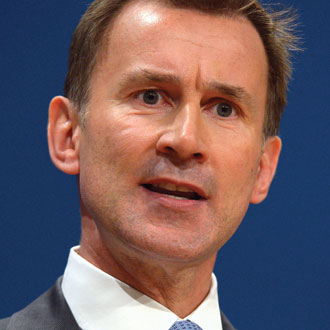DH says it cannot guarantee that state-backed GP indemnity will slash costs

Exclusive Any reductions in GP indemnity costs ‘will depend on negotiations’ and cannot yet be guaranteed, the Department of Health has told Pulse.
Health secretary Jeremy Hunt announced earlier this month that the Government is to launch a scheme by 2019 which is ‘more affordable’ and ‘more reliable’ for GPs than the current system for clinical negligence cover.
But despite this, when probed by Pulse for a guarantee to the profession that costs would be brought down by the scheme, a DH spokesperson would only say that ‘this is a matter for negotiations with MDOs and through the GP contract’.
BMA GP Committee deputy chair Dr Mark Sanford-Wood, who leads negotiations on indemnity on behalf of the profession, said he understood that the Government was ‘being very cautious about making promises that they may have to alter’ as ongoing discussions progress.
However, he added: ‘But our position is that not only must any future rises be covered by the Government-financed part of the scheme, but actually even what we are paying at the moment is not sustainable.
‘So there must, in some way, be an overall reduction in the financial burden to the profession as it currently stands.’
Dr Sanford-Wood went on to warn that unless the cost burden was brought down, the Government would fail in its ambition to resolve the GP workforce crisis.
He said: ‘As a junior doctor you have a choice of going into a career in a hospital specialty where there’s no indemnity, or another career where you automatically lose £10,000 of your income – before you even start.
‘We have to level that playing field and that has been our argument to DH. If you are serious about solving the workforce crisis in general practice then there has to be substantial movement on offsetting some of the current costs through state funding.’
The BMA has previously warned that indemnity premium increases expected this autumn – in light of potential changes to the discount rate, which could increase the size of claims payouts – threatened to make working as a GP ‘untenable’.
But the announcement of a state-backed scheme appears to have caused confusion among defence organisations, which are taking a varying approach to the cost of subscriptions in the interim period until it comes in.
The MDU immediately announced that it would halve fees from November, although its move was criticised by rival MDOs when it transpired that its new offering did not include run-off cover.
The MDU in turn said it was ‘wrong’ to continue to offer occurrence-based indemnity cover without applying the cost increase related to the discount rate change – which its GP members could not afford.
What we know so far about the Government’s GP indemnity scheme
The Department of Health has published a factsheet providing details on how it intends the scheme to function.
This sets out that:
- It would be a practice policy, providing cover to ‘providers of GP services (e.g. GP contractors)’ and out-of-hours providers;
- This would ‘include the activities of practice staff’ working in the delivery of GMS, PMS and APMS services;
- It would only provide ‘clinical negligence’ cover. GPs would want their own indemnity for professional and regulatory issues such as GMC proceedings and coroners’ courts;
- A decision is yet to be made on whether the scheme could be extended to GPs in prison health or armed forces;
- DH wants a scheme in place ‘as quickly as possible’ but it is likely to take 12 to 18 months.
Pulse July survey
Take our July 2025 survey to potentially win £1.000 worth of tokens











